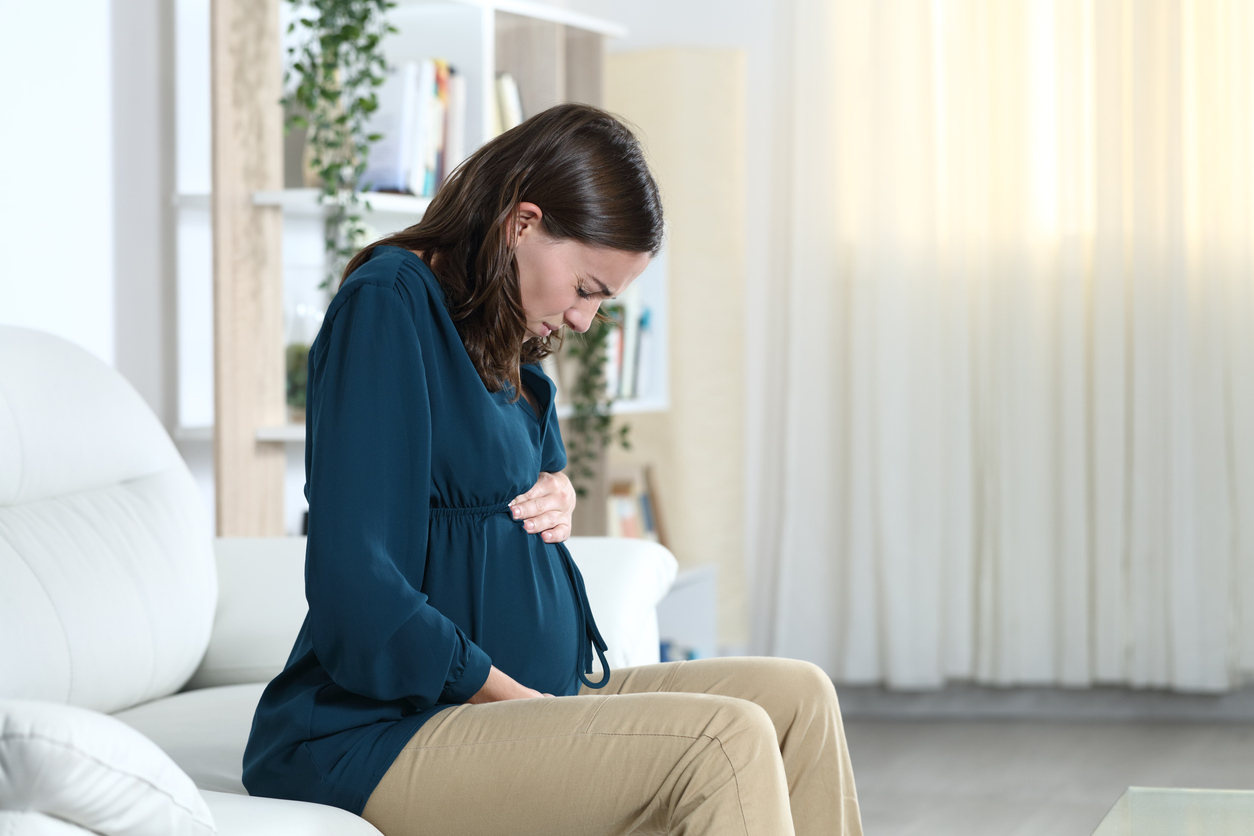Worried about how pregnancy fever can affect you and your growing baby? Learn about the causes, effects, and possible treatments of fever during pregnancy.
Normal body temperature is 98.6 degrees, and anything above that is classified as a fever. The latter indicates that the body is fighting an infection, which could cause short- and long-term complications if not treated urgently.
Although a fever is generally not dangerous, suddenly developing pregnancy fever can raise the alarm for the health of both the mother-to-be and the growing fetus.
However, it’s often difficult to tell whether you have a fever or just feel a little flushed when you’re pregnant. Moreover, you might be experiencing a random hot flash due to hormonal changes and your fetus producing heat as it grows.
So in this article, we’ll help you understand the symptoms, possible causes, effects, and treatment options for pregnancy fever.
Symptoms and Causes of Pregnancy Fever
The symptoms of fever during pregnancy are no different from a regular fever. These include:
- Chills and shivering
- Feeling flushed
- Muscle aches and weakness
- Sweating
- Dehydration
- Loss of appetite
- Irritability
Here are some of the possible causes of developing a fever during pregnancy:
Common Viral Infections
Since the immune system experiences modifications to accept and protect the fetus during pregnancy, you’re more prone to common viral infections.
Low-grade fevers are usually caused by benign viral infections such as the common cold, whereas the flu might cause high-grade fevers.
That’s why it is important for expecting mothers to get a flu shot at the beginning of their pregnancy.
Bacterial Infections
Common bacterial infections during pregnancy include urinary tract infections (UTI), strep throat, and kidney infections. These might require pregnancy-safe antibiotics.
Listeriosis
Listeriosis is a serious infection caused by eating contaminated food. The risk of listeriosis and food poisoning becomes higher during pregnancy, so avoid eating raw meat, unpasteurized cheese, and fish.
COVID-19
Fever could also be linked with COVID-19 caused by the novel coronavirus. If you’ve recently been exposed, immediately call your doctor to avoid developing any complications from the disease.
Effects of Fever on Developing Fetus
A low-grade fever is generally not alarming; however, if it becomes prolonged due to an underlying infection, it could harm the baby. Similarly, complications could arise if the body temperature spikes during the first trimester, which is a critical period for early fetal development.
Here’s what research says about some of the possible effects of fever on a developing fetus:
Congenital Defects
It was suggested earlier that developing pregnancy fever could increase the risk of congenital disabilities. However, more recent findings have contradicted this claim.
According to a 2017 study published in the Journal BMC Pregnancy and Childbirth, maternal fever and the risk of congenital anomalies are not associated with maternal fever during pregnancy.
Autism
A 2018 study reported an association between autism and maternal fever, especially when the latter occurred during the second trimester. It also concluded that frequent fevers increased this likelihood.
However, the chances of developing autism in a fetus exposed to fever were lower in women who took anti-fever medication while pregnant.
Pregnancy Loss
Research suggests that fever does not cause pregnancy loss; it is the infection that is generally the culprit.
Treating Fever during Pregnancy
The first thing to do is take acetaminophen (Tylenol) to help reduce the fever and prevent it from spiking. Avoid other over-the-counter (OTC) medications such as ibuprofen or aspirin (Motrin or Advil) during pregnancy unless your doctor recommends them.
Taking ibuprofen during the second trimester was linked with low birth weight, while taking ibuprofen during the second and third trimesters was associated with asthma.
Secondly, take a lukewarm shower to lower the temperature. Finally, stay well-hydrated with cool beverages and keep your clothing light.
Once you’ve contacted your doctor, he might prescribe the following:
Antibiotics
You’ll need to take antibiotics if there seems to be a bacterial infection. Even though most antibiotics are considered safe during pregnancy, 10 percent have insufficient data about their safe use during pregnancy. Hence, they should only be prescribed after a detailed risk assessment, and their use must be monitored.
Antiviral Medication
Viral medication is usually prescribed if fever accompanies symptoms such as flu. However, these are most effective if taken within 48 hours of the symptoms, so don’t delay going to your doctor.
Preventing Fever during Pregnancy
Although you cannot always avoid developing a fever during pregnancy, there are certain precautions you can take to reduce the potential risk. These include:
- getting the flu shot
- maintaining proper hygiene
- avoiding exposure to sick people
- being careful about what you eat/drink
Final Thoughts
When it comes to pregnancy fever, the thermometer might help indicate the severity of the infection. A low-grade fever isn’t usually something to stress over; if your fever isn’t accompanied by another symptom such as a cold or cough, take acetaminophen while you wait to connect with your doctor.
However, if your fever spikes to 101 degrees Fahrenheit, immediately seek medical advice or visit your nearest emergency. Prolonged or high fever indicates a severe infection that may cause complications during pregnancy.
The best way to prevent a fever during pregnancy is precaution; stay clean, eat sensibly, avoid interacting with sick individuals, and you and your growing baby should be fine.






